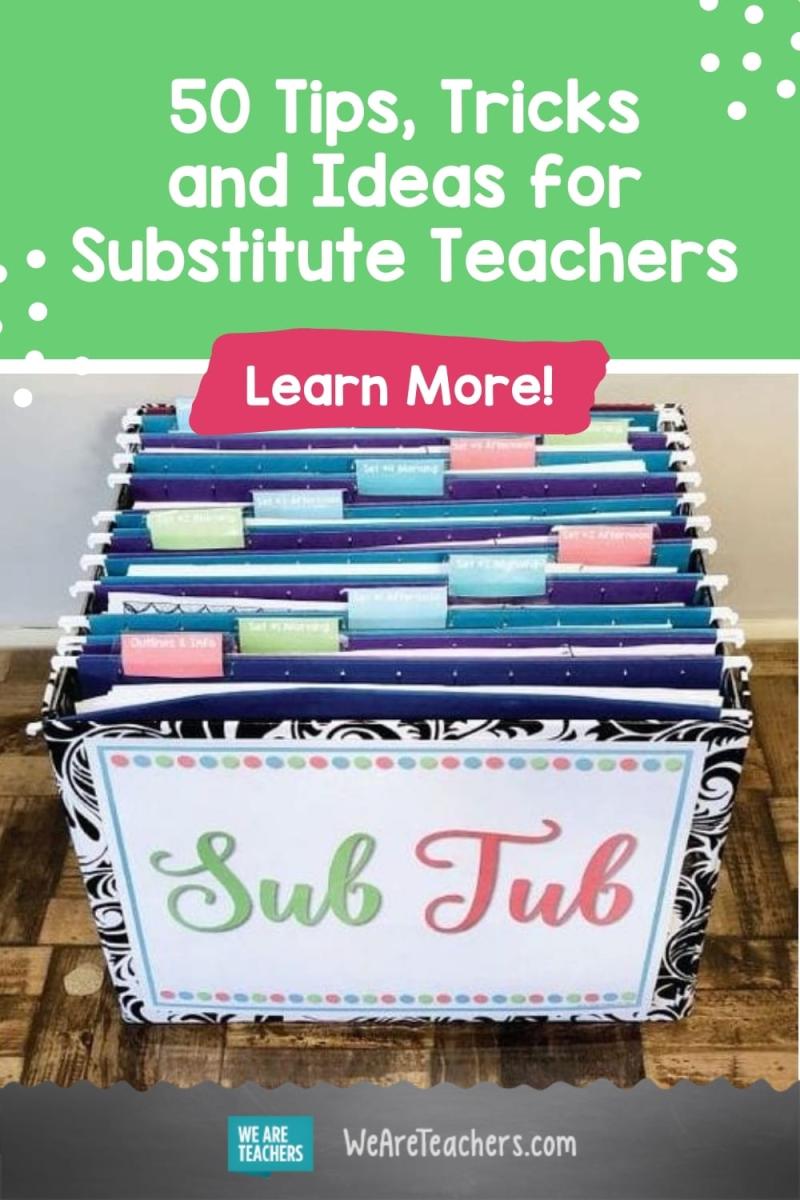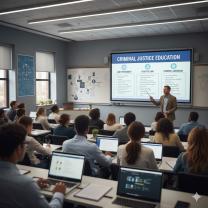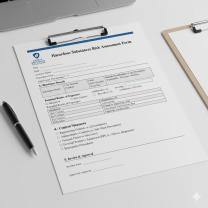What is a substitute teacher?
A substitute teacher is an educator who temporarily takes on the responsibilities of a regular classroom teacher when the latter is absent. Substitute teachers play a crucial role in maintaining continuity in education by ensuring that learning continues in the absence of the regular teacher. They are often called in on short notice to cover for teachers who are ill, attending professional development, or facing other unexpected circumstances.
Here are key aspects of the role of substitute teachers in education:
Temporary Replacement: The primary role of a substitute teacher is to step into the role of the regular classroom teacher for a short period. This may involve teaching lessons, managing the classroom, and providing support to students during the teacher's absence.
Adaptability: Substitute teachers need to be adaptable and flexible. They may be assigned to different grade levels, subjects, or schools, and they must be able to quickly familiarize themselves with the curriculum and classroom routines.
Classroom Management: Maintaining order and discipline in the classroom is a significant responsibility. Substitute teachers must establish a positive and respectful learning environment, enforce school rules, and manage student behavior effectively.
Lesson Implementation: Substitute teachers follow the lesson plans provided by the regular teacher. This includes delivering instructional content, conducting activities, and ensuring that the planned curriculum is covered during the absence.
Student Engagement: Substitute teachers engage students in learning activities, foster participation, and respond to student questions. They may also provide additional support to students who need assistance with assignments.
Communication: Effective communication with school staff, students, and the regular teacher is essential. Substitute teachers may need to provide feedback to the regular teacher about the day's events, report any issues, and follow any specific communication protocols set by the school.
Emergency Procedures: Substitute teachers should be familiar with and follow the school's emergency procedures, including protocols for fire drills, lockdowns, and other safety measures.
Professionalism: Substitute teachers are expected to maintain a high level of professionalism. This includes dressing appropriately, arriving on time, and conducting themselves in a manner that aligns with the school's expectations.
Building Relationships: While substitute teachers may have limited time with students, building positive relationships is important. Establishing rapport and creating a supportive learning environment contribute to a successful experience for both the substitute and the students.
Crisis Management: In the event of unforeseen circumstances or emergencies, substitute teachers must be able to handle crisis situations calmly and follow established protocols.
Substitute teaching can be a rewarding but challenging role, requiring a combination of instructional skills, adaptability, and effective classroom management. It is an integral part of the education system, ensuring that students continue to receive quality education even when their regular teachers are temporarily absent.
Unmasking the Superpowers of Substitute Teachers:
1. Defining the role:
Substitute teachers step in for absent regular teachers, ensuring education continues uninterrupted. They are:
- Caretakers of continuity: Bridging the gap in instruction and upholding routines to minimize learning disruptions.
- Classroom managers: Fostering a productive learning environment by establishing expectations, maintaining order, and addressing behavioral issues.
- Content deliverers: Implementing prepared lesson plans or adapting their own knowledge to engage students and cover key learning objectives.
- Communicators: Liaising with students, parents/guardians, and regular teachers to ensure smooth transitions and keep everyone informed.
- Resourceful improvisers: Adapting to diverse classroom dynamics, age groups, and subject matters with flexibility and creativity.
2. Supporting the learning environment:
- Maintaining structure and routine: Providing consistency in expectations and procedures helps students feel secure and focused on learning.
- Offering different perspectives: Sharing their unique teaching styles and experiences can enrich students' learning and cater to diverse learning needs.
- Fostering positive relationships: Building rapport with students and promoting respectful interactions create a supportive and engaging learning environment.
- Promoting adaptability and resilience: By demonstrating how to handle unexpected situations, substitute teachers can help students develop their own adaptability skills.
3. Typical responsibilities:
- Reviewing lesson plans and familiarizing themselves with classroom dynamics.
- Introducing themselves, setting expectations, and establishing a positive classroom climate.
- Delivering pre-prepared lessons or adapting their own to cover key learning objectives.
- Monitoring student engagement, addressing disruptions, and providing constructive feedback.
- Administering quizzes, collecting assignments, and communicating student progress to regular teachers.
- Maintaining classroom cleanliness and ensuring adherence to school policies.
4. Adapting to different settings and subjects:
- Flexibility and resourcefulness: Drawing on past experiences, available resources, and creative thinking to adjust to unfamiliar situations.
- Collaboration and communication: Consulting with colleagues, regular teachers, and school staff for guidance and support.
- Quick observation and assessment: Gauging student needs and adjusting teaching approaches accordingly.
- Maintaining core principles: Regardless of subject matter or age group, upholding basic principles of effective teaching like clarity, engagement, and differentiation.
5. Impact on students' educational experiences:
- Minimizing learning gaps: Ensuring continued progress even during teacher absences helps prevent setbacks and maintain academic momentum.
- Exposure to diverse teaching styles: Expanding students' perspectives on learning and catering to different learning preferences.
- Developing resilience and adaptability: By demonstrating how to handle unexpected situations, substitute teachers can help students develop important life skills.
- Appreciating different roles in education: Recognizing the value of various professionals contributing to their educational journey.
Substitute teachers, though temporary presences, can leave a lasting impression on students' educational journey. Their skills, flexibility, and dedication play a crucial role in building a supportive learning environment and ensuring consistent progress, even in the absence of the regular teacher.












